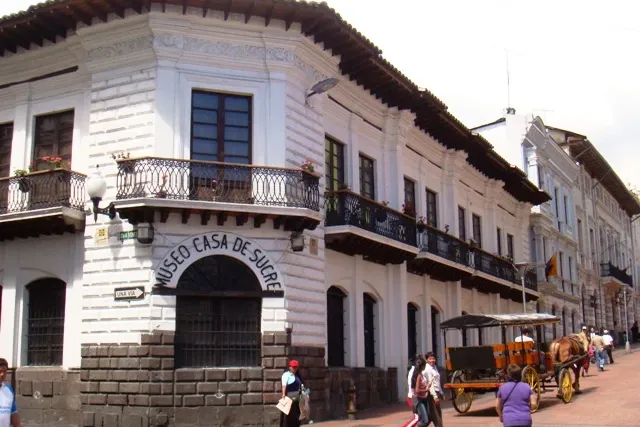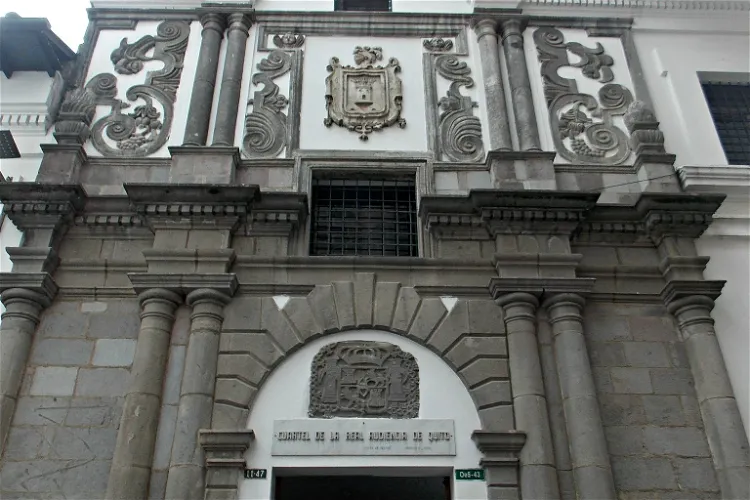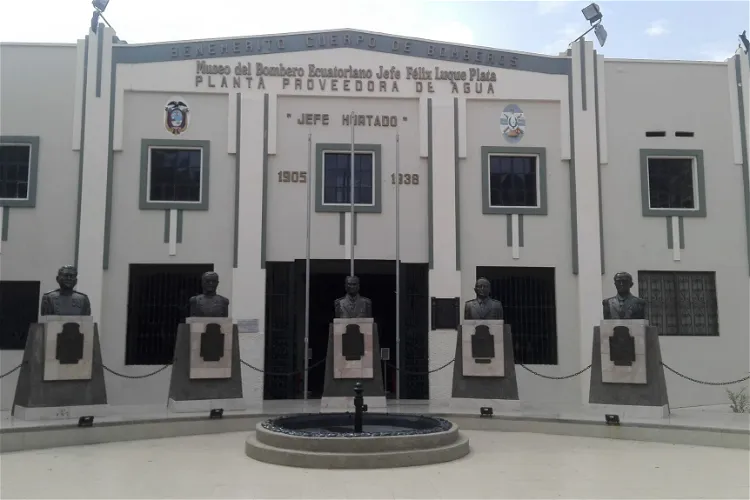Are you interested in exploring historic homes? Here are the must-see historic houses in Ecuador:

City Museum
QuitoThe City Museum, also known as Museo de la Ciudad, is situated in the heart of the colonial center of Quito, Ecuador. Specifically, it is located on Garcia Moreno Street, nestled between Morales and Rocafuerte. This location makes it easily accessible for tourists visiting the city.
Museum House of Sucre
QuitoSucre House, also known as Museo Casa de Sucre, is a museum situated in the historic center of Quito, Ecuador. Established in 1977 by the Ministry of Defence, it serves as a tribute to its most notable residents, Marshal Antonio José de Sucre, a Venezuelan independence hero, and his wife, Mariana Carcelén.
Alberto Mena Caamaño Museum
QuitoThe Alberto Mena Caamaño Museum is a significant cultural institution in Quito, Ecuador. It is conveniently located in the historic center of the city, adjacent to the Palacio de Carondelet. This location makes it easily accessible for tourists exploring the city's rich history and culture.
Guayaquil Historical Park
SamborondónThe Guayaquil Historical Park is a recreational space that combines wildlife and cultural exhibits. It showcases various species of flora and fauna native to Guayaquil. Additionally, the park features old houses from the urban area that were carefully disassembled from their original locations and meticulously rebuilt within the park. This unique combination provides visitors with a rich and diverse experience, allowing them to appreciate both the natural and historical aspects of Guayaquil.- 5
National Museum of Ecuador
QuitoThe National Museum of Ecuador is situated in the city of Quito, housed within the facilities of the Casa de la Cultura Ecuatoriana building. This location makes it easily accessible for tourists and locals alike, offering a convenient opportunity to explore Ecuador's rich cultural heritage. 
Firefighter's Museum
GuayaquilThe Firefighter's Museum in Guayaquil, officially named Museo del Bombero Ecuatoriano "Jefe Félix Luque Plata", is a significant institution that aims to highlight the history and values of the Fire Department. The museum underscores the importance and contribution of the Fire Department to the city, providing visitors with a unique insight into the city's past and the role of its firefighters.
Father Pedro Bedón Museum
QuitoNamed after the painter who used to live and work in this convent. Come see his and other artists' works and learn something about history.
Museo Amantes de Sumpa
Santa ElenaThe Museo Los Amantes de Sumpa, located in the Province of Santa Elena, offers a unique glimpse into the region's history and culture. The museum features a clay oven where ancestral cooking classes are held, providing visitors with an opportunity to learn about traditional culinary practices. Additionally, the museum houses a traditional coastal house, complete with typical elements such as a wooden trough and a petate (a type of mat).
Complejo Cultural Fábrica Imbabura
Andrade MarínThe Complejo Cultural Fábrica Imbabura, located in Atuntaqui, Ecuador, has a rich history dating back to its establishment as a textile factory on May 6, 1924. This cultural complex now serves as a museum, showcasing its collection of machinery, photographs, and rooms that tell the story of its past. It was once the most important textile development center in northern Ecuador, providing livelihoods for hundreds of families in the Antonio Ante canton.- 10
Presley Norton Museum
GuayaquilThe Presley Norton Museum, located in Guayaquil, Ecuador, is an archaeological museum that boasts a collection of over 8,000 archaeological artifacts. These artifacts originate from various indigenous groups of Ecuador, providing a rich insight into the country's historical and cultural heritage. 
Sucre House
Patate UrcuSucre House, also known as Museo Casa de Sucre, is a museum situated in the historic center of Quito, Ecuador. It was founded in 1977 by the Ministry of Defence. The museum is a significant landmark in the city, offering a glimpse into the life of its most famous occupants, Marshal Antonio José de Sucre and his wife, Mariana Carcelén.